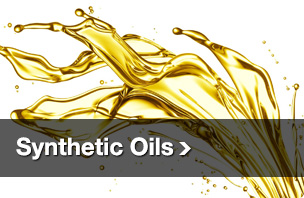Industrial machinery is a central component to many businesses. When a company owns precision equipment, it must use the proper types of lubricants to maintain such machinery. Failure to use adequate lubricants will inevitably lead to poor mechanical performance and ultimately breakdown. Due to the nature of certain businesses, the lubricants used can introduce health and safety hazards to workers and consumers. To prevent this from occurring, natural and synthetic lubricants, such as food grade hydraulic oils, become an essential component to ensure proper machinery maintenance and safer manufacturing practices.
Who Uses Food Grade Hydraulic Oil?
Food grade hydraulic oil is most often used in food processing and packing plants. Machinery that operates in and around food and beverage preparation will typically require oil lubricants for proper operation. However, since many lubricants are not healthy to contact or ingest, synthetic food grade oils function as a safer alternative to traditional industrial grade machine lubricants to prevent product contamination. Food grade hydraulic oils are also used in the manufacturing and packaging of pharmaceutical drugs, maintaining certain medical-based machinery, and by various businesses attempting to reduce their impact on the environment.
Safety Precautions When Using Food Grade Hydraulic Oil
Although food grade hydraulic oil is much safer and environmentally friendly than most non-food grade hydraulic oils, workers should still take measures to avoid contact with hair, skin and eyes. If contact has occurred, it is best to wash or rinse the hair, skin or eyes with water to remove the hydraulic oil and any residue from the point of contact.
Disposing of Food Grade Hydraulic Oil
As with any type of chemical waste, proper disposal measures are necessary to ensure best industry practices when using food grade hydraulic oils. It is generally considered best to place used or contaminated food grade hydraulic oils into suitable containers. To comply with proper disposal methods, an individual or company using food grade hydraulic oils will need to gain access to their local state or regional waste disposal policies for proper disposal. Such disposal guidelines will be specific to the state or region in which the lubricant disposal steps are being carried out.
How Lubricants Are Categorized in the Food Industry
Lubricants used in the food industry fall into three main categories, namely H1, H2, and H3 lubricants. H1 Lubricants are generally the Lubricants that have the greatest potential of incidental contact with food. It is recommended that when using H1 lubricants on machinery, for purposes such as anti-rust protection or on gaskets and seals, it is best to keep from using more than is absolutely necessary for maintaining machinery in proper operational form. This best practice helps to reduce the amount of incidental food contact with these lubricants, thus reducing overall food contamination.
Regulatory Measures
Since lubricants used in the operation of Machinery in the preparation and packaging of food produces the risk of food products being contaminated by these lubricants, the USDA was originally in charge of authorizing food grade lubricants for the food industry. For a lubricant manufacturer to be granted authorization to make their lubricants available for sale on the market, they had to first be evaluated under the FDA guidelines specified in the federal code regulation (21 CFR 178.3570). Under this portion of the FDA guidelines of the federal regulatory code, specifications for approved substances used in the manufacturing of lubricants used in situations of incidental food contact were provided and classified as category H1 lubricants. In February, 1998, the USDA terminated the authorization program due to lacking resources to sustain the effort. In 1999, the regulatory program authorizing the use of food grade lubricants for the food industry was taken over by NSF-International. Keeping with the original FDA guidelines, NSF maintains an industry-related registry of non-food substances used in and around food preparation and packaging plants.
Registration and Certification
Currently, there are no legal requirements forcing manufacturers of food grade hydraulic oils to register or certify the safety or efficacy of their lubricants. A lubricant manufacturer of food grade hydraulic oils is at liberty to determine from the FDA guidelines what their legal obligations are and comply with regulatory guidelines accordingly. However, despite the lacking legal force of registration, the NSF registration measure has emerged as something of an industry standard. Alternatively, if a food manufacturing plant wants to meet with other industry standards, such as a food manufacturing plant that produces what they claim to be kosher or halal designated food products, then the use of food grade hydraulic oils must meet standards specified under these regulated food label guidelines to be used in the preparation and packaging of such foods.




